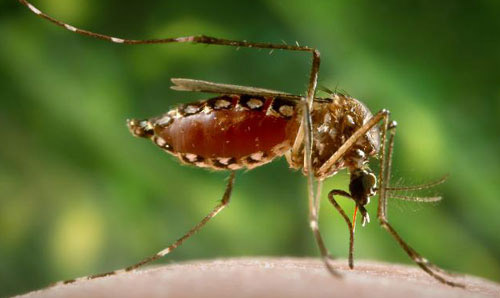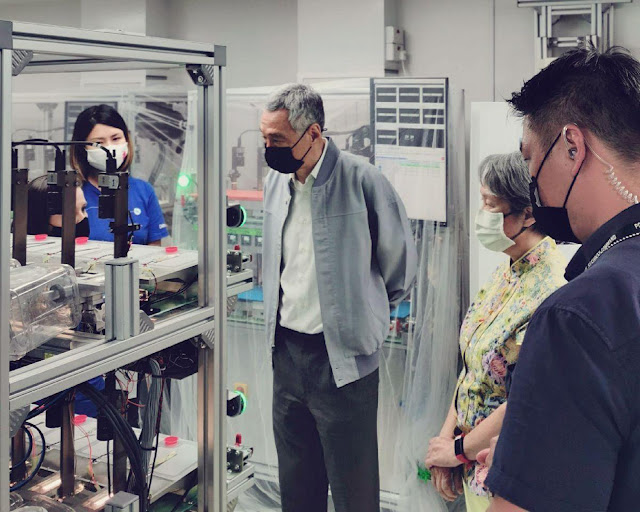
A closeup of the vicious Aedes aegypti mosquito. James Gathany
The deadliest animal on Earth isn’t the vampire bat or king cobra—it’s the female mosquito, responsible for over a million deaths annually. Unlike males, only female mosquitoes bite humans, and the Aedes aegypti species is particularly dangerous for its viciousness and transmission of viruses including dengue, Zika, and chikungunya. In Fresno, California, the spread of Aedes aegypti poses a significant public health risk due to its adaptability to urban environments and preference for human blood. Active during the day, it thrives in artificial containers like tires and plastic pools, infecting millions worldwide. Efforts to control mosquitoes often harm the environment, prompting scientists to launch the Debug Project, which sterilizes male mosquitoes to prevent the reproduction of disease-spreading females.
Currently, most people rely on insect repellents to fend off mosquitoes. In 2020, nearly 200 million people in the US used these products. The most common active ingredient in mosquito repellents is diethyltoluamide, or DEET. DEET works by interfering with the receptors on a mosquito’s antennae, which are responsible for detecting heat, carbon dioxide, and chemicals emitted by human skin. When these receptors are disrupted, mosquitoes struggle to locate and bite their human targets. Though DEET-based repellents are effective, they come with significant downsides. For those with sensitive skin, high concentrations of DEET can cause irritation, rashes, and hives, making it advisable to avoid using these products on young children. Additionally, DEET has a sharp, pungent odor and acts as a plasticizer, meaning it can damage plastics, rubbers, and other synthetic materials. Worse, DEET is a neurotoxin that the skin can absorb, potentially impacting the nervous system. While chemical repellents and pesticides are highly effective at reducing mosquito populations, they also harm pollinators, plants, and even humans.
To address this issue, Verily Life Sciences introduced the Debug Project, which aims to reduce the Aedes aegypti population through a novel, eco-friendly method. Instead of targeting female mosquitoes directly, the project sterilizes male mosquitoes. When these sterile males mate with females, their eggs are laid but fail to hatch, leading to a rapid decline in the mosquito population and a decrease in the spread of disease. The method relies on a process known as the sterile insect technique (SIT), which uses Wolbachia, a harmless bacterium, to sterilize male mosquitoes. Wolbachia is naturally present in about twenty percent of insect species but is usually absent in Aedes aegypti. When male mosquitoes are infected with Wolbachia, it prevents them from transmitting viruses like dengue, yellow fever, and Zika, but most importantly, it also renders the eggs laid by infected females infertile. In other words, when a female mosquito infected with Wolbachia lays her eggs, they will never hatch.
Next, they undergo a critical step: sex sorting. This is essential because if a female mosquito infected with Wolbachia is released, it could endanger the project’s success, as the female mosquito could build immunity to the disease. Female mosquitoes are slightly larger than males, so they are easier to identify, but to ensure accuracy, a camera is used to capture an image of each mosquito. The photo is stored in a database, where software analyzes the image and determines the mosquito’s sex. Male mosquitoes are then released into the wild, while females or unidentifiable mosquitoes are destroyed with a burst of lethal air.
So far, the Debug Project has released approximately 48 million sterilized male mosquitoes into the wild. These male mosquitoes, now carrying Wolbachia, mate with wild females, resulting in infertile eggs and a gradual reduction in the Aedes Aegypti population. According to the project’s blog, the project has expanded to areas much further than just Fresno, California. On April 15, 2024, it was announced that in Singapore, the project had covered up to thirty-five percent of households, and that within a year of release, residents had seen a seventy-seven percent decrease in dengue infections. The project also is successfully seeing results in Puerto Rico, Australia, and the US. The project has since partnered with the BugOut project, stationed in the British Virgin Islands. Through its innovative method, Verily is taking a significant step toward controlling one of the deadliest animals on the planet, without relying on harmful chemicals or pesticides.

Singapore’s Prime Minister Lee visiting Verily’s mosquito sex sorting machinery in 2020. Debug Project Blog
